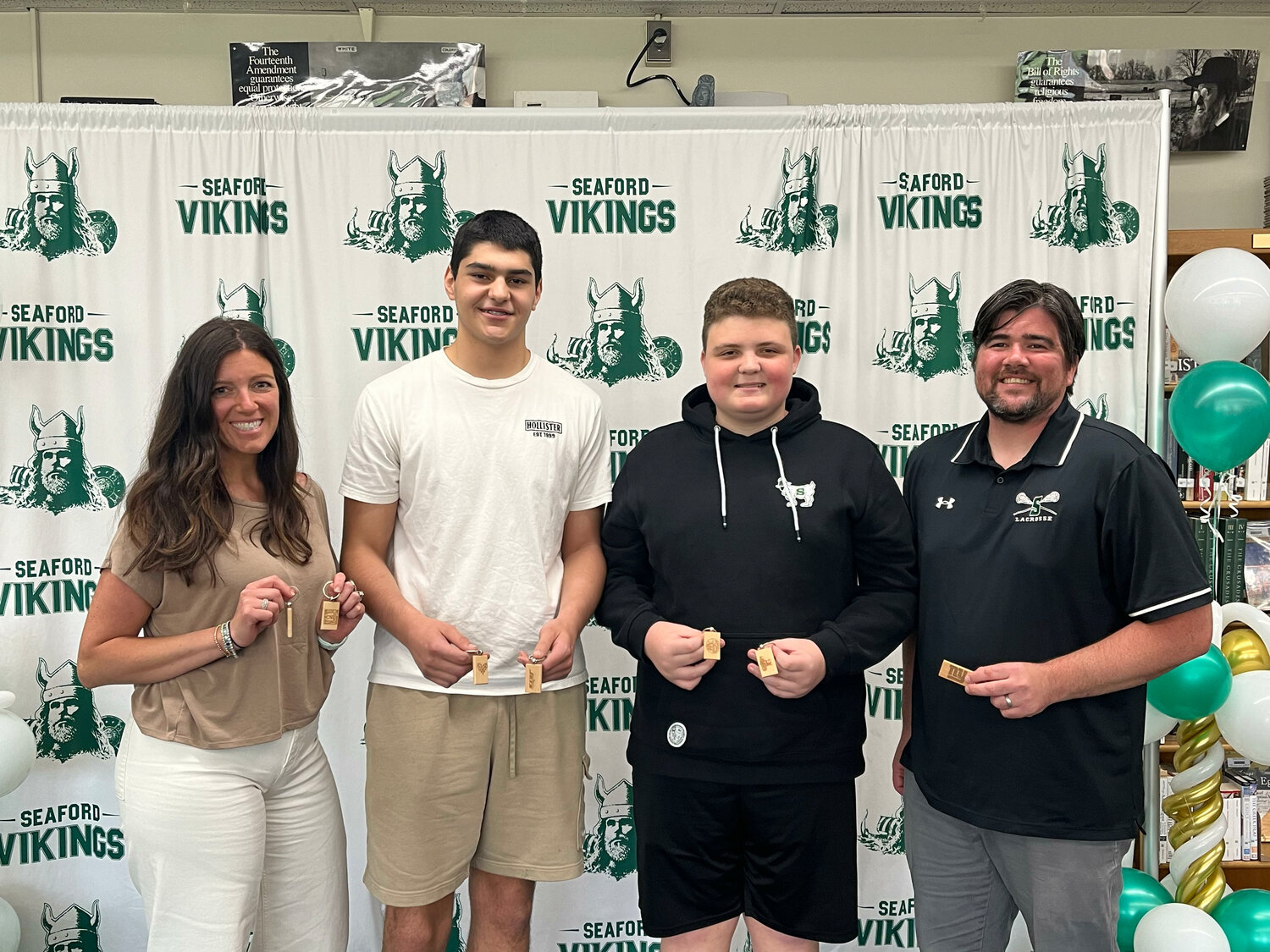Seaford High School prepares students with life skills course
Students who graduated from Seaford High School last month are more prepared to enter the next chapter of their lives, thanks to a course that has taught them valuable life skills.
The course, called Beyond Seaford High School, teaches students a variety of tasks that would give them a leg up as they enter adulthood. Through this program, students are learning how to prepare for a job interview, manage a business, and how to live on their own.
“We basically put together a curriculum that attempts to help (students) with whatever paths they are going to go into,” Michael Wimmer, one of the course instructors, said.
Wimmer created the course four years ago, when students were returning to the classroom after the pandemic. He realized that students who had earned advanced Regents diplomas were not quite ready to enter the job market or take on certain responsibilities, such as speaking publicly or budgeting money, he added.
“You hear horror stories about kids getting their first credit card and running up debt and not realizing that is going to impact your ability to buy a house,” Wimmer said.
Wimmer, who teaches the course with co-instructor Christine Caserta, said Beyond Seaford High School runs the full school year on alternating days and is split into two classes. Students who sign up for the course in ninth or 10th grade start in Beyond 1, where they learn important life skills such as public speaking, budgeting and cooking. Beyond 2 builds upon the previous class, applying the skills learned to help prepare them for college or job interviews, whichever path they choose to take.
For the public speaking unit, students begin by giving a one-minute speech to the class about what they’re interested in, which then builds to longer speeches to inform or entertain. According to Wimmer, students learn to maintain eye contact, how to address an audience, and how to prepare for a public-speaking event.
The pandemic affected the learning for the students enrolled in this year’s course, Wimmer said, and units such as public speaking could help to fill the gap created when students switched to remote learning in 2020.
“There was a change in socialization,” Wimmer said. “There was a change in the way that they interacted with both inside and outside of school, and we could try to address some of those things and bring them along.”
Another unit involves mock job interviews, where students apply for a fictional job and prepare for an interview. During this scenario, Wimmer said he helps them with their resumes, asks them questions as though he were a hiring manager, and works with them on appropriate responses.
Sophomore Jonathan Saboni said he enjoyed the mock interviews, which helped him understand the basics of getting a job.
“I like it a lot,” Jonathan said. “I learned how to talk to a boss and how to get a job interview.”
Caserta noted that most students have never taken a bus, so a public transportation lesson was incorporated. Students in this unit learn to get where they need to go, based on the time they need to get there. Wimmer added that students have already applied these skills for travel, such as sophomore Joseph DeMaria, who took the bus to grocery stores and boarded a train to see an Islanders game.
“I figured out the times for the trains and everything,” Joseph said, “so obviously this class helped me.”
One unit that has become a favorite for students in the Beyond 1 class is where they work in groups to create a fictional food truck, Wimmer said. Students develop their own business model, financial plan, craft a menu, and build a food truck using shoeboxes. Caserta helps students cook one item, like bacon burgers or empanadas, from the fictional menu in the life skills suite, a classroom that provides cooking equipment. The project concludes with students presenting their food truck concepts and cooked dishes to a panel of judges.
In Beyond 2, students learn more about creating and running a business, and Jonathan and Joseph came up with the idea to sell customizable wooden key chains. Wimmer said the two students figured out how much it cost to make them and then involved their classmates, who helped take orders, designed the key chains and kept records by filling out spreadsheets.
Wimmer said students would then sell the key chains to faculty, friends, families or anyone interested in owning one. Customers would fill out a form about what they want on the keychain, and students would craft them using an engraving machine in the school’s tech room.
“We’ve now created a small business where they’re able to have people come up during their free periods and buy the key chains,” Wimmer said.
In the first two days of taking orders, students raised almost $500 in key-chain sales. Proceeds from the key chains, Wimmer said, would be donated to St. Jude Children’s Research Hospital, an idea that Jonathan and Joseph came up with.
Wimmer said it’s been exciting to see the program’s goals manifest into projects such as these.
“It really makes you feel like you got something done today,” Wimmer said. “You accomplished something, and you can see students growing.”
Caserta said topics students learn in class change each year, shifting based off the needs of the students and what they’re interested in.
“We always open the class with, ‘If there’s something you want to learn, that your parents do, and you want to do it or you want to learn how to do it, we’re here,’” Caserta said.
Caserta said it has been a fulfilling experience to see how well students can achieve goals that are not necessarily academic.
“We get to see kids be successful, that necessarily maybe other people don’t get to see,” Caserta said, “and I think that’s the best part about all of this.”






